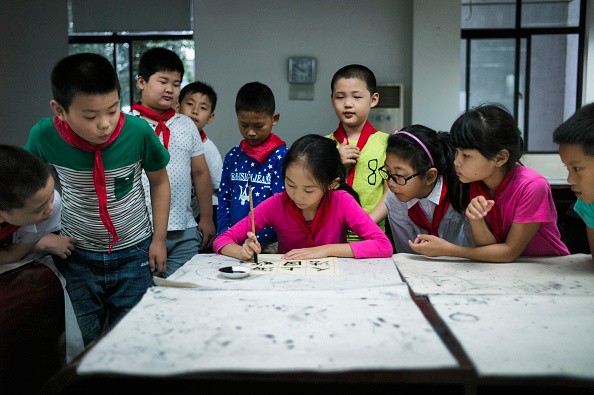Recent years have shown that classes helping students improve their Emotional Quotient (EQ) are gaining popularity in China, according to a psychology expert.
EQ, according to Psychology Today, is the ability to identify and manage one's own emotions and that of others--including emotional awareness of oneself and others, ability to harness emotions and apply them to actual tasks like problem-solving, the ability to manage and regulate emotions, and the ability to cheer up or calm down another person.
Intelligence quotient (IQ) does not seem a problem among Chinese. In fact, a study conducted in more than 80 countries from 2002 to 2006 produced a controversial world ranking of countries based on average IQ, and it showed China among the top five.
However, driven by the motivation to excel academically, Chinese students do not spend much time for self-reflection or self-awareness. This is according to Irene Tieh, Cross-Cultural Connector and Founder of USA College Connection who found out that the social traditions in U.S. schools do not exist in the same way in Chinese schools.
Tieh said that social activities such as school dances and parties at parents' house do not have much place in Chinese students. But academic activities - such as math or science competitions, field trips to establishments that encourage learning like museums, and tutorials even during summer vacation - are very common.
Furthermore, she noted that when Chinese students can take a pause from their busy academic life, they resort to their smartphones, iPads or computers--a break that does not encourage social life either.
Some Chinese parents have shown concern over their children's low EQ. A Global Times report featured a mother of an 11-year-old girl who sent her academically excellent daughter to a class especially arranged to improve children's social skills.
The mother expressed her worry for the social life of her daughter, who according to her is self-centered, unmindful of others' opinion and unable of teamwork, resulting in conflicts with her peers.
Liu Yang, the teacher and counselor at Huichengzhang EQ Development who said that EQ classes are gaining popularity today in China, attended to this girl and said that she might lack empathy, a key in measuring EQ. The counselor said that a low EQ may result when children are spoiled by their parents and/or parents focus too much on their children's academic performance.
EQ classes usually involve games and role-playing, after which children are allowed to analyze the role and relate it to their own real-life experiences so they can apply it in the future.
With the class focusing on the girl's emotion, thinking and behavior, the mother reported that she has seen development on her daughter. She has more friends and even her academics improved further.
Liu said that even though EQ classes help, the role of parents in encouraging and forming their children's character and social skills takes a big part--a responsibility recognized by the mother who said that her own words and actions influence her daughter.






















